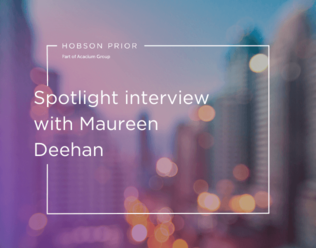How to network strategically at conferences

Attending conferences is one of the best ways to network within your industry. In fact, 85% of professionals say they build stronger, more meaningful business relationships at conferences than through other forms of networking[1]
Nevertheless, networking at an event with hundreds or thousands of people in attendance can be a daunting challenge. Without a strategy, you can easily miss good opportunities, get stuck talking to the wrong people or simply become overwhelmed. So we’ve gathered our best tips in this article to help you take an effective, targeted approach to networking.
Before the conference
The more you prepare before a conference, the more you’re likely to get out of it. This doesn’t just mean stocking up on business cards – you need to arm yourself with knowledge. Not only will this make networking easier and more productive, it will also increase your confidence. Do your homework by following these steps:
- Set some goals. What do you want out of networking? This might be new clients, a job offer or a business partner, or you may simply want to develop your industry connections. Your goals should influence which sessions you attend and who you approach.
- Research speakers, attendees and exhibitors. Make a shortlist of those you’d like to meet. If you can, ask to meet up for a coffee at the conference; mention something specific you’d like to discuss, such as a project they’ve worked on, as this will make your interest seem genuine.
- Create a schedule. Map out which sessions you want to attend so you don’t miss anything important. Remember to spend time in the break-out areas and exhibition hall, as this is a good place to network.
- Practise introducing yourself. Keep it concise (about 30 seconds). Consider mentioning a key project you’ve worked on, as this will give them something to ask questions about.
On the day
Lots of people suffer from networking nerves, but just remember that everyone is there to meet new people, and most will be more than happy to chat with you. To optimise your success, keep your goals in mind and follow these steps:
- Warm up. Before you approach people on your speak-to list, give yourself a practice run. Strike up a conversation with the first person you sit next to, asking open-ended questions such as ‘how did you get into your field?’ or ‘which sessions are you planning to attend?’.
- Take notes on people. When you’ve finished talking to someone, jot down some key points from your conversation as this will help you when following up after the conference.
- Think about what you can offer. Research shows that networking can make people feel ‘dirty’[2]
- Don’t discount people at lower levels. These people often have up-to-date knowledge of innovation and thinking in their field, and they may provide a good introduction to senior people within their organisation.
- Know how to excuse yourself gracefully. Whether you get stuck in an overly long conversation, or you’re talking to someone you don’t want to connect with, remember that it’s ok to excuse yourself. Explain that you want to circulate more, thank them for their time and move on.
Follow up
To turn promising contacts into valuable additions to your professional network, it’s crucial that you follow them up shortly after the conference. Keep the ball rolling by following these steps:
- Send emails within 1-2 days. While you’re still fresh in their minds, drop a short email to contacts to say how much you enjoyed meeting them. Remind them what you spoke about, and if possible send a relevant article to reinforce your interest in the subject.
- Add them as a connection on LinkedIn. Don’t forget to send a personalised message with your request, reminding them how you met.
- Offer to introduce them to people. You’ll be demonstrating your value if you can introduce them to other relevant connections.
- Suggest a catch-up over coffee. Emails, calls and social media have their place, but nothing can replace a meeting in person – in fact, 95% of professionals say face-to-face meetings are essential for long-term business relationships.[1]
Networking at conferences takes a big investment of time, money and effort. Nevertheless, you’ll get out what you put in. If you keep your goals in mind, while at the same time valuing and enjoying the company of like-minded professionals, you’ll establish an exceptional business network.
We’re going to being attending a number of upcoming life science conferences, including the DIA EuroMeeting in Hamburg and the ARCS Scientific Congress in Sydney. Why not meet up with us to discuss our latest job opportunities, or your company’s staffing needs? Find out more on our Events page.
[2] The Contaminating Effects of Building Instrumental Ties: How Networking Can Make Us Feel Dirty, Administrative Science Quarterly December 2014









.jpg)




.png)


